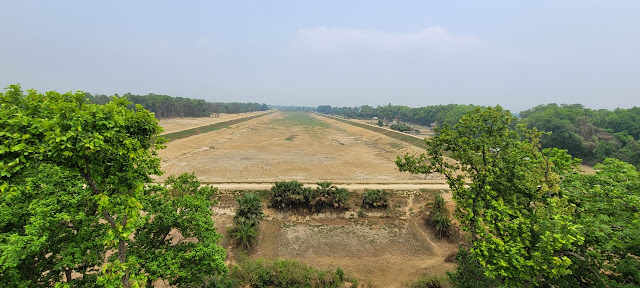Editorial: The Hizbut Tahrir issue
Government must deal with it firmly
Everybody must have the right to practice his or her religion. But nobody can impose it on others. It is the tone of force or the tenor that concerns us and the sheer audacious manner in which some of those involved with it have been going about speaking of the objectives of the outfit.
The teachers arrested in Rajshahi the other day were carted off to prison because they happened to be distributing leaflets propagating the overthrow of the government. As if that were not enough, some other leading members of the outfit in the capital have now threatened to wage a movement and not allow anyone in Bangladesh to live in peace if the arrested teachers are not released in forty-eight hours.
The attitude smacks of intolerance and contradicts the outfit's claim that it does not believe in violence or force. Obviously, it is a situation that calls for tough handling, given the fact that threats are undermining the fundamental constitutional and political premise upon which the country functions.
The members of Hizbut Tahrir, which has been at work in Bangladesh since 2001, have of course claimed no links with terrorism or terrorist organisations. And yet the reality is that the outfit has been proscribed in a number of countries in the West as well as the Middle East. The question, therefore, is why?
Whatever be their goal, there is little for it to justify its publicly stated goal of overthrowing the government or any government based on democratic political principles. The organisation's chief coordinator has contemptuously rejected democracy. That attitude in itself is symptomatic of the potential for disorder. The unfortunate part of the story is that successive governments in Bangladesh have, in spite of the facts before them, always chosen to soft-pedal on the issue. The approach has been as mystifying as it has been disquieting. Hizbut Tahrir followers can be found holding responsible positions in such reputed bodies as private universities. Just how the organisation has managed to acquire such space leaves one wondering.
We believe that it is now extremely important for the government to deal with the problem, firmly and without losing time. There can be no denying that the contents of the statements and leaflets coming from Hizbut Tahrir are a frontal assault on the constitutional process and democracy. It is values -- those symbolised by the ideals of free speech, tolerance, equality, et al -- that are now under threat. If we are opposed to military coups or any other types of intervention in democracy, we are equally opposed to democracy being threatened with destruction in the name of our religion. Only firmness on the part of the government and an increased sense of awareness among citizens about the lurking danger can prevent this country from sliding into despotism.
The teachers arrested in Rajshahi the other day were carted off to prison because they happened to be distributing leaflets propagating the overthrow of the government. As if that were not enough, some other leading members of the outfit in the capital have now threatened to wage a movement and not allow anyone in Bangladesh to live in peace if the arrested teachers are not released in forty-eight hours.
The attitude smacks of intolerance and contradicts the outfit's claim that it does not believe in violence or force. Obviously, it is a situation that calls for tough handling, given the fact that threats are undermining the fundamental constitutional and political premise upon which the country functions.
The members of Hizbut Tahrir, which has been at work in Bangladesh since 2001, have of course claimed no links with terrorism or terrorist organisations. And yet the reality is that the outfit has been proscribed in a number of countries in the West as well as the Middle East. The question, therefore, is why?
Whatever be their goal, there is little for it to justify its publicly stated goal of overthrowing the government or any government based on democratic political principles. The organisation's chief coordinator has contemptuously rejected democracy. That attitude in itself is symptomatic of the potential for disorder. The unfortunate part of the story is that successive governments in Bangladesh have, in spite of the facts before them, always chosen to soft-pedal on the issue. The approach has been as mystifying as it has been disquieting. Hizbut Tahrir followers can be found holding responsible positions in such reputed bodies as private universities. Just how the organisation has managed to acquire such space leaves one wondering.
We believe that it is now extremely important for the government to deal with the problem, firmly and without losing time. There can be no denying that the contents of the statements and leaflets coming from Hizbut Tahrir are a frontal assault on the constitutional process and democracy. It is values -- those symbolised by the ideals of free speech, tolerance, equality, et al -- that are now under threat. If we are opposed to military coups or any other types of intervention in democracy, we are equally opposed to democracy being threatened with destruction in the name of our religion. Only firmness on the part of the government and an increased sense of awareness among citizens about the lurking danger can prevent this country from sliding into despotism.


Comments
Post a Comment